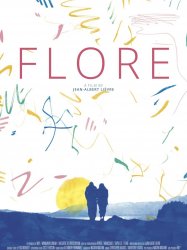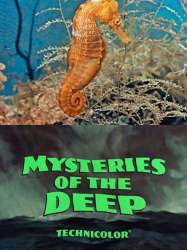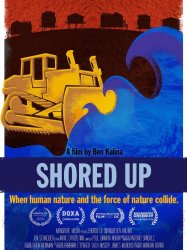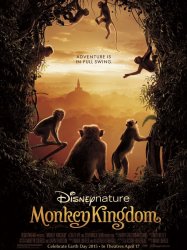Le syndrome du Titanic is a french film of genre Documentary directed by Jean-Albert Lièvre
Le syndrome du Titanic (2009)

If you like this film, let us know!
- Infos
- Casting
- Technical infos
- Photos
- Videos
- Film quotes
- Characters
- Music
- Awards
Le Syndrome du Titanic est un film documentaire réalisé en 2008 par Nicolas Hulot et Jean-Albert Lièvre, sorti le 7 octobre 2009.
Il fait suite au livre éponyme sorti en 2004 : Le Syndrome du Titanic où Nicolas Hulot développe les thèmes de l'impact de l'homme sur l'évolution de l'environnement et l'érosion de la biodiversité.
Synopsis
" Ce film est davantage un appel à la raison et un acte politique qu'un documentaire sur la crise écologique. D'ailleurs, la "belle nature sauvage" est la grande absente..." (Nicolas Hulot)Comments
Leave comment :
Suggestions of similar film to Le syndrome du Titanic
There are 1 films with the same director, 8962 with the same cinematographic genres, 663 films with the same themes (including 474 films with the same 2 themes than Le syndrome du Titanic), to have finally 70 suggestions of similar films.If you liked Le syndrome du Titanic, you will probably like those similar films :

Flore (2014)
, 1h32Directed by Jean-Albert Lièvre
Genres Drama, Documentary
Themes Medical-themed films, Documentary films about health care, Films about psychiatry, Films about disabilities
Rating69%





Depuis 2005, la mère du cinéaste Jean-Albert Lièvre, Flore, est atteinte de la maladie d'Alzheimer. De cliniques en centres spécialisés, son état dépérit. Sa famille décide alors de l'installer dans leur villa en Corse pour lui prodiguer une thérapie alternative…

Nature's Strangest Creatures (1959)
, 18minutesDirected by Ben Sharpsteen, James Algar
Origin USA
Genres Documentary
Themes Environmental films, Documentary films about environmental issues, Documentary films about nature, Children's films
Rating74%





Une rencontre avec les animaux de l'Australie.

Mysteries of the Deep (1959)
, 24minutesDirected by Ben Sharpsteen
Origin USA
Genres Documentary
Themes Environmental films, Documentary films about environmental issues, Documentary films about nature, Children's films
Actors Winston Hibler
Rating77%






Farmland (2014)
, 1h17Directed by James Moll
Origin USA
Genres Documentary
Themes Environmental films, Documentary films about business, Documentary films about environmental issues
Rating62%





The goal of the film is to bridge the gap between food growers and food consumers by presenting farmers' and ranchers' perspectives on producing food. The film aims to do this by focusing on the lives of six farmers in their 20s who describe their experiences of and views on modern farming and ranching in the United States.

Oil Sands Karaoke (2013)
, 1h22Origin Canada
Genres Documentary
Themes Environmental films, Films about music and musicians, Films about sexuality, LGBT-related films, Documentary films about environmental issues, Documentary films about music and musicians, Documentary films about technology, Musical films, LGBT-related films, LGBT-related film
Rating65%






Pandora's Promise (2013)
, 1h27Origin USA
Genres Documentary
Themes Environmental films, Documentary films about environmental issues, Documentary films about nuclear technology, Documentary films about technology
Rating72%






After Winter, Spring (2015)
, 1h15Genres Documentary
Themes Environmental films, Documentary films about business, Documentary films about environmental issues
Rating67%






Voices of Transition (2012)
, 1h5Origin France
Genres Documentary
Themes Environmental films, La mondialisation, Films about the labor movement, Documentary films about business, Documentary films about environmental issues, Documentary films about technology, Documentaire sur le monde du travail, Disaster films
Rating75%





Using interviews and overlays of graphics and text, the film presents the current problems facing industrial agriculture. It explores why in the interviewees' view the current industrial model is not up to the task of feeding the world's people. According to the film every calorie of energy contained in a food source currently takes between 10 and 20 calories of crude oil in the production of fertilizers and transportation to produce, leading to a strong dependence of the cost of food on oil prices. As a result of peak oil and increasing oil prices this dependence will lead to ever increasing food prices. According to the film, this dependence already represents a significant weak-spot in the global food supply chain. Additionally, agriculture is already responsible for 40% of greenhouse gas emissions, contributing to climate change. Furthermore, the film argues that the overuse of inorganic fertilizers has been responsible for the loss of soil fertility and threatens the complete loss of usable soil within the next decades through soil erosion and sinking crop yields. These effects, according to the film, can only be partly mitigated by the increased use of those same fertilizers. The loss of workplaces, the concentration of land in the hands of a few (allegedly a farm closes every 23 minutes in France) as well as the dependence on large corporations are enumerated as side effects of the industrialisation of agriculture since the 1920s. Companies, such as Monsanto and Bayer, control everything from seed stock to fertilizers and the necessary chemical mixes for hybrid plants, thereby controlling the entire supply chain. The film argues that this development was supported through subsidies from the World Bank. Interviews with Vandana Shiva, the founder of the Transition Towns movement Rob Hopkins and various agricultural experts serve to argue this viewpoint. The dependence on crude oil is illustrated through the example of the wholesale food market in Rungis.

Shored Up (2013)
, 1h24Origin USA
Genres Drama, Documentary, Historical
Themes Environmental films, Documentary films about environmental issues
Rating73%





The film explains the dangers of accelerating Sea-Level Rise through devastating effects of Hurricane Sandy.

Monkey Kingdom (2015)
, 1h22Directed by Alastair Fothergill
Origin USA
Genres Documentary, Animation
Themes Films about animals, Environmental films, Documentary films about environmental issues, Films about apes, Documentary films about nature, Children's films
Actors Suraj Sharma, Tina Fey
Rating71%





Maya is a toque macaque whose world is changed when her son Kip becomes part of her extended family. Maya’s family has its share of diverse personalities and she wishes her son to have the best advantages for advancing within the family's social strata. When their home is overrun by a neighboring tribe of monkeys, the family has to find a new home. Maya uses her inherent smarts to lead the family to new resources, but it develops that the entire group will have to cooperate in order to reclaim their original home, where Maya wishes to advance her son's future within the family.
 Connection
Connection